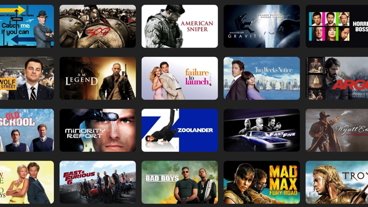Steve Jobs talks MacBook Air, China Mobile, Amazon Kindle, more
In a pair of interviews following his Macworld keynote address on Tuesday, Apple chief executive spoke of his firm's two-year initiative to develop the world's thinnest notebook and also weighed in on the iPhone in China, Amazon's Kindle and Google's Android mobile platform.
"It's [takes] precision machined aluminum to get it this light and this thin," he said.
In a separate interview with the New York Times' John Markoff, Jobs also revealed that the MacBook Air's circuit board, which includes the custom-shrunk Core 2 Duo chip, is about the length of a pencil.
“I’m going to be the first one in line to buy one of these,†he added. “I’ve been lusting after this.â€
Meanwhile, Jobs also weighed in on other recent industry developments, like Amazon's new $400 Kindle eBook reader, which he believes is destine for failure.
"It doesn’t matter how good or bad the product is, the fact is that people don’t read anymore," he said. "Forty percent of the people in the U.S. read one book or less last year. The whole conception is flawed at the top because people don’t read anymore."
Jobs was equally skeptical about Google’s decision to move into the cellular market with its new open-source Android software platform (1, 2).
"Having created a phone its a lot harder than it looks,†he told the Times. "We’ll see how good their software is and we’ll see how consumers like it and how quickly it is adopted.†Jobs instead believes the search giant had actually achieved its goal of not getting locked out of the cellular market without Android.
"I now think Android hurts them more than it helps them," he professed. "It’s just going to divide them and people who want to be their partners.â€
In his interview with the Times, Jobs also discounted reports that his company's Apple TV model will extend to cable television. "We’re not going to go there with the cable cards,†he insisted, referring to ongoing analyst speculation that a future version of the wireless set-top-box would ship with TV tuner cards. "That whole industry, their go-to-market strategy is pretty loopy, and it’s fractured,†he said. "Our model is like DVD."
In his interview with CNBC's Goldman, Jobs also insisted that all those rumors of negotiations between Apple and China mobile over bringing iPhone to China are just not true. Instead, he said a single representative from China Mobile has flown into Cupertino just once, and that there are no on-again off-again negotiations as some in the mainstream media have been reporting.
Obviously, Jobs said he's eager to launch the iPhone in China — one of the world's hottest cellular markets — but has nothing new to announce at this time.
 AppleInsider Staff
AppleInsider Staff













 Amber Neely
Amber Neely
 Thomas Sibilly
Thomas Sibilly

 William Gallagher
William Gallagher
 Malcolm Owen
Malcolm Owen
 Christine McKee
Christine McKee









108 Comments
*Chuckle*
Well, you just gotta love Jobs for his insistence that Android is a go-nowhere platform. I tend to disagree, but we'll see.
Job's is spot on about the Kindle. In order to succeed it has to do way more than just be a reader.
Job's is spot on about the Kindle. In order to succeed it has to do way more than just be a reader.
It's also an MP3 player, even though that's not obvious.
People don't read anymore? I doubt that very much. While I'd agree that there's probably some correlation between tech savvy and reading books that might make those people most likely to use a device be the very ones to shun it while those who love books are less likely to be computer slaves, it's not right that people don't read.
The people I know want to sit with a book precisely because it's NOT a screen and a desk. That, if there's any reason for devices like the Kindle not catching on, is probably closer to the truth than "people don't read anymore". Yeesh.
I'm surprised to hear Jobs promoting illiteracy. Its shameful if most Americans aren't reading, but I'm pretty sure that Amazon sells a lot of books, so they see a market for it. Where I think that they're going to have trouble is getting people to pay $400 for a device that helps them read books.
You need to save a lot of money on print books before the $400 starts to make sense. If a books copyright has expired, you an usually pick up a paperback copy for about $5 and if the copyright is still valid, then even an ebook is going to cost you money, so it could take a very long time to pay off the $400 cost.